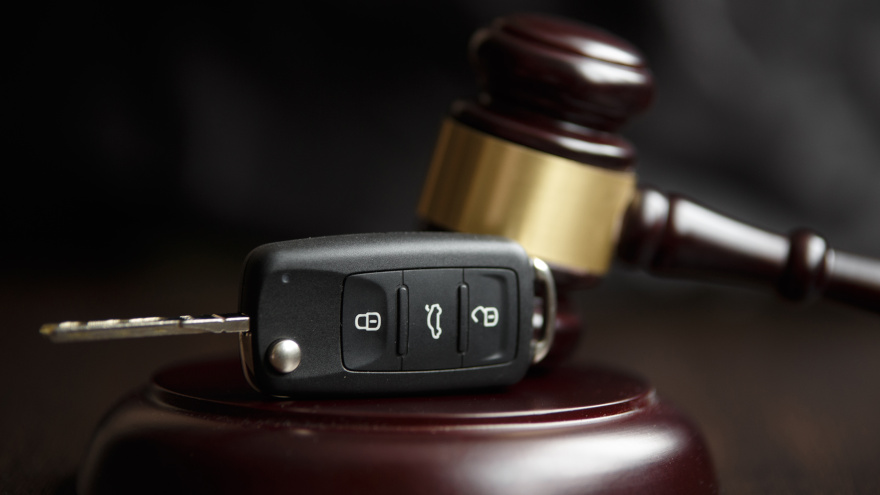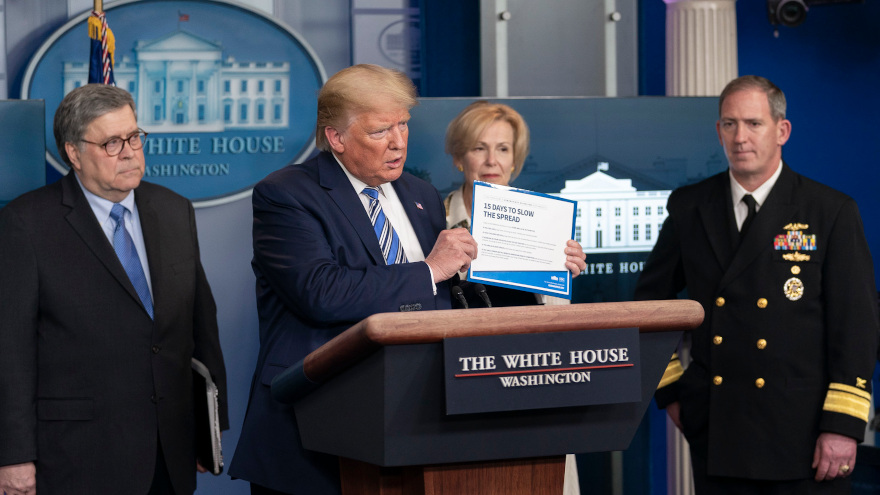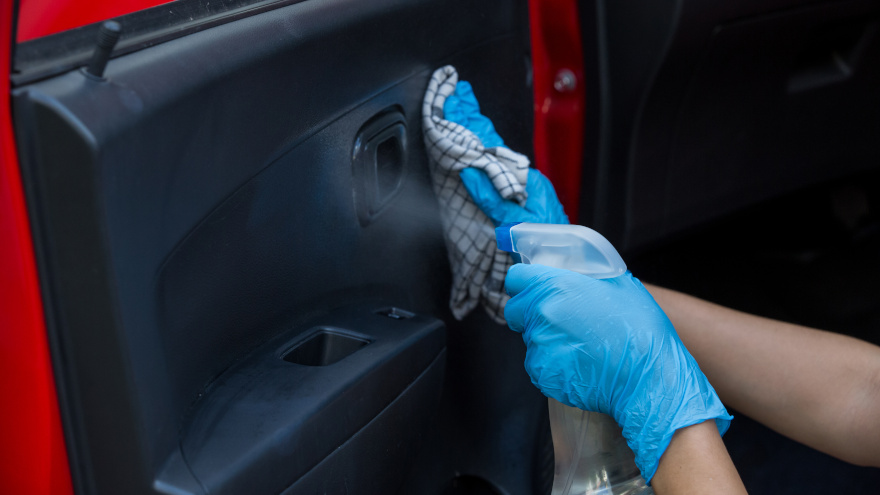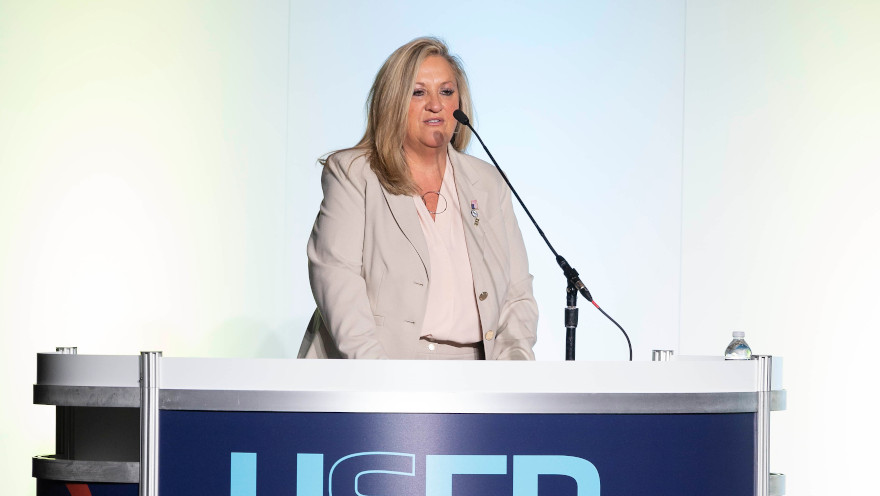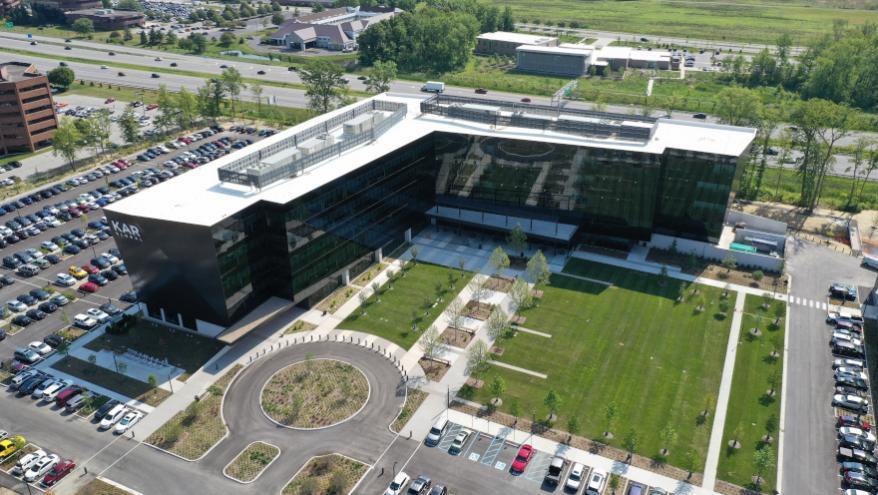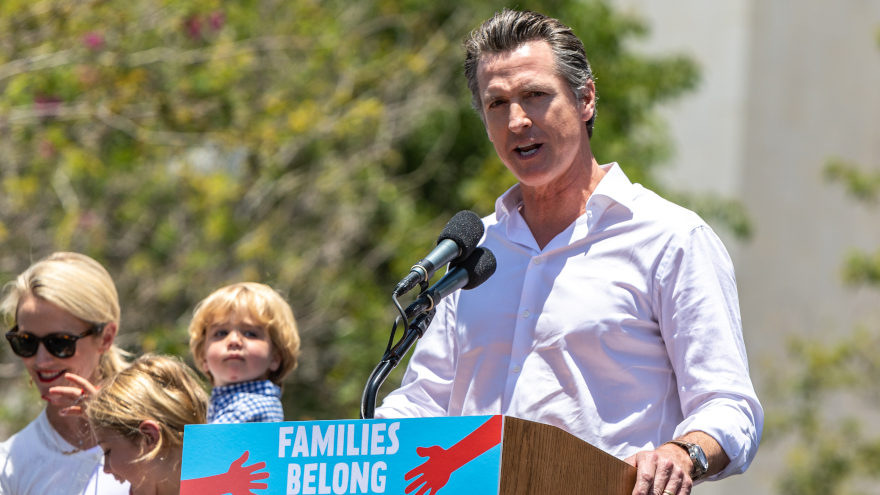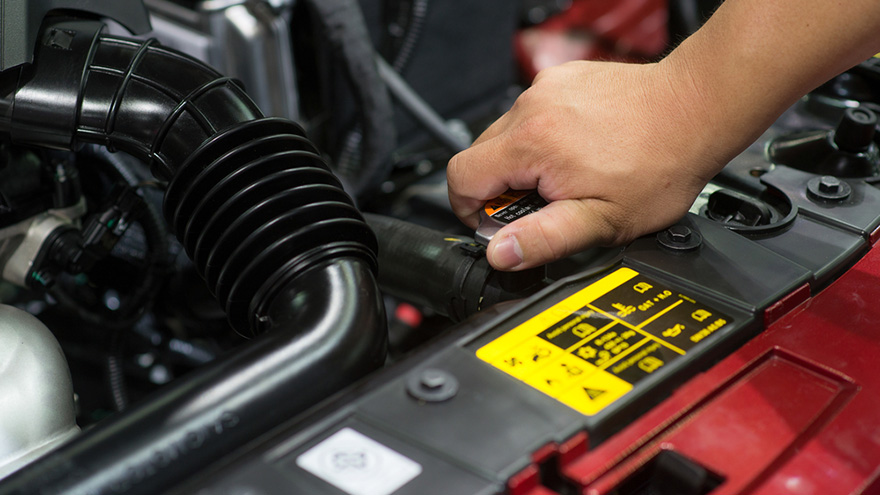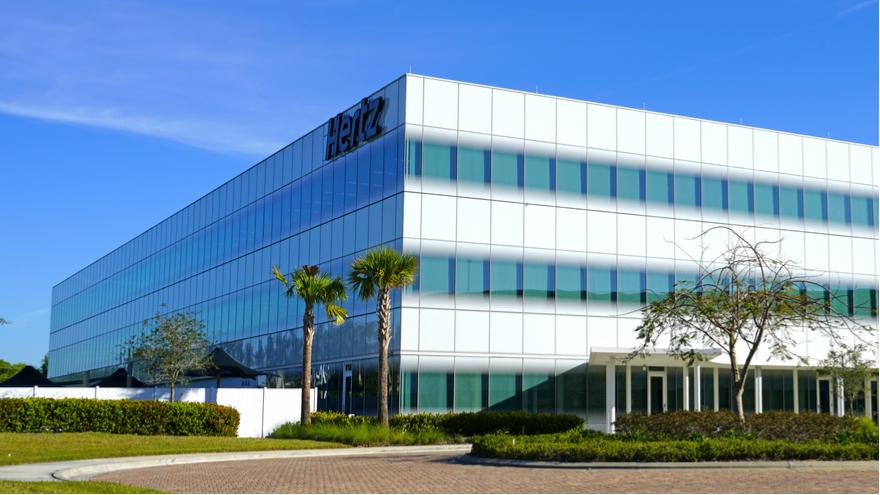Before delving into its newest wholesale price data, the latest Black Book Market Insights report offered a reassuring assessment of how auctions, consignors and dealers adjusted to how the coronavirus pandemic has forced the industry to operate.
Black Book vice president of vehicle valuations Laura Wehunt began by saying, “This past week we saw big changes on the auction lanes with nearly all auctions going completely digital in an effort to keep everyone safe. Overall, it looked to be a smooth transition during an unprecedented time.”
The report moved on to note that car segments behaved similarly for two consecutive weeks. Analysts reported that their volume-weighted data showed overall car segment values increased by 0.32% this past week; the same reading as a week earlier.
“In cars, we continued to see the affordable car segments — sub-compact, compact and midsize — increase but saw the expensive luxury, prestige luxury and premium sporty segments decrease,” Black Book said.
Volume-weighted information indicated that overall truck segment values — including pickups, SUVs and vans —increased by 0.20% last week. That’s a bit higher than the previous week when Black Book pegged the rise at 0.16%.
Like with cars, the increases for trucks were dominated by the more affordable sub-compact, compact, and mid-size crossover segments. Also, in parallel, the largest decline was a luxury segment,” analysts said.
Despite so much activity shifting to online channels, Black Book’s sales observers still managed to capture observations of what was happening in virtual lanes. Here is the rundown:
— From Florida: “It seems like buyers were not very interested unless the vehicle was green light with a good CR.”
— From Georgia: “Cars carried the higher price tags compared to SUVs.”
— From North Carolina: “The bottom of the market was strong today.”
— Another view from Florida: “Great sale until CRs began to fall midway through the run.”
— From Massachusetts: “The vehicles that sold for $5,000 or less did very well, and others were hit or miss.”
As additional states and municipalities issue stay-at-home orders and business closures, dealerships are caught in a coronavirus-created storm of confusion.
On Tuesday, the leaders of the National Automobile Dealers Association (NADA), the American Truck Dealers (ATD), the National Association of Minority Automobile Dealers (NAMAD), the American International Automobile Dealers Association (AIADA) and the Alliance for Automotive Innovation sent a letter to President Trump asking for clarification that vehicle sales are essential services that need to be maintained during the COVID-19 pandemic.
Federal officials already issued clarity that vehicle repair shops are deemed to be essential services and are to remain open.
The associations explained the ability to provide replacement cars and trucks in response to any number of scenarios will be vital to ensuring that those in need of reliable personal transportation continue to have access to it. The groups stressed that franchised car and truck dealers recognize the need to conduct even limited sales and leasing activities in a manner that protects the general public, our customers and our employees.
“Most consumers are concerned about their jobs, families and health and will not be in the market for new or used vehicles for weeks or months, so the overall effect of this additional capacity will be limited,” the groups wrote. “However, for the many people who may need a replacement vehicle or a new vehicle for any number of reasons, the additional sales activity surely would be defined as vital or essential to them.”
“Additionally, many of nation’s essential workers, including first responders, medical workers, grocery store employees, delivery drivers, and other providing similar services may suddenly find that they need a more reliable way to get to these critical jobs,” the letter continued. “In short, there are thousands of scenarios that would prompt the urgent need for a car, SUV or truck – now more than ever.”
According to the letter:
• In 2019, 12.55 million vehicles were scrapped because they wore out or it was not economical for them to be repaired. Approximately 9.4 million of those vehicles were replaced with a new or used vehicle.
• In 2018, 1.24 million vehicles were determined by insurance companies to be total losses as a result of an accident, flooding or other total loss events. Individual consumers and businesses typically use their insurance proceeds to purchase a substitute vehicle within a few days. Without that option, they may not have affordable, reliable transportation to meet their personal or commercial needs.
• Between March and July of this year, 1.8 million vehicle leases will expire (4.1 million for the entire year of 2020), all of which will require replacement. In many ways, these customers will face the same challenges as described above following a total loss.
• Virtually all of last year’s 500,000 sales of medium and heavy-trucks were sold for use in commercial fleets. Officials noted 71.4% of our nation’s tonnage freight is hauled in trucks sold by our truck dealer members.
• The associations estimated that around 500,000 “Essential Critical Infrastructure Workers,” as defined in DHS/CISA Guidance (healthcare providers, law enforcement, public safety, first responders, food and agriculture employees, etc.), annually acquire a new or used vehicle.
“Not all vehicle sales are discretionary consumer purchases. A significant number of dealership sales transactions occur because a consumer or business is in immediate need of a replacement vehicle for basic transportation. This clarification is particularly important as various transit services have been curtailed or eliminated due to the public health recommendations about social distancing,” the groups said. “Our members would simply like to provide vehicles to those customers in a secure manner, while at the same time meeting our obligation to the public-at-large and our employees.”
The entire letter can be viewed here.
Digital automotive platforms, retail and wholesale, are making adjustments for COVID-19, just as many brick-and-mortar operations are, as well.
In an example, one of those is a new No-Touch Test Drive system from Shift, a retail online used-car marketplace.
For No-Touch Test Drive, a Shift concierge will deliver a car to a customer’s home, wipe it down with disinfectant and hand it over to the customer to test drive on his or her own.
And at BacklotCars, an online wholesale marketplace, all dealers can now sell for free.
“Historically we have focused on and specialized in new-car trades from franchise dealers,” BacklotCars founder and chief executive officer Justin Davis wrote in a letter to the company’s dealer partners.
The letter continued, “In these times, we feel it is important to help our independent dealer partners keep their inventory moving, so we are opening the BacklotCars platform for them to sell through as well.”
At Shift, the company is temporarily suspending customer visits to its physical facilities. But customers can schedule test drives and buy cars directly online at Shift.com and receive home delivery of the vehicle and can also and sell their car to Shift through an at-home evaluation.
During the current crisis, Shift will waive delivery fees for all online vehicle purchases.
Shift said in a news release that the company was temporarily suspending physical facility customer visits “in light of the state and county Shelter-in-Place order and to follow public health guidance regarding social distancing.”
Shift has implemented at work-from-home policy for employees whose jobs allow it. But employees in the field will continue to follow all Centers for Disease Control and Prevention recommendations for reducing the spread of germs.
Those recommendations include frequent handwashing, maintaining social distance, use of hand sanitizer and disinfecting frequently touched surfaces.
“It is with a deep sense of responsibility to our community and team that we are providing these solutions to help keep everyone safe,” said Shift chief operating officer Sean Foy.
Foy continued, “We remain committed to serving our customers while keeping health and safety front and center. As always, we have and will continue to enable customers to transact from the comfort and safety of their homes.”
The Shift news release reported that the company is actively following COVID-19 updates such as guidance from the CDC and local health officials. The company will continue working to protect staff, customers and the community.
At BacklotCars, the company will implement no buy fees for sealed bid sales. To support its dealers who run their own sealed bid sales, the company is waiving all buy fees for dealers’ legacy buyers, “so they can buy your cars online.”
BacklotCars is also implementing more mobile application improvements.
“BlackBook valuations are now available to help you quickly understand vehicle market value,” Davis said.
He said, “These values are adjusted based on the vehicle’s AutoCheck, which is also provided.”
Float duration flexibility is another initiative from BacklotCars. For qualifying dealers using BacklotCars’ Float financing product, BacklotCars is offering an additional 15 days “on your Float” at no additional cost.
Transport to your customers is another BackLotCars initiative.
“Our Transport team is now yours,” Davis said. “If you have a customer that wants to purchase a vehicle but doesn’t want to come in person, we will deliver the vehicle to them at “competitive and market-driven rates.
“I feel now is the time to do more to leverage our technology to help dealers stay safe buying and selling wholesale vehicles 100% online,” Davis said.
Leaders representing the major constituencies of the auto auction industry continued their weekly teleconference calls on Monday, updating one another on their respective responses to the COVID-19 pandemic.
Auto Remarketing caught up with National Auto Auction Association chief executive officer Frank Hackett by phone for a rundown on the latest.
Among the updates: NAAA president Laura Taylor announced the association had voted unanimously last week on a financial relief package for all member auctions.
NAAA is deferring 2020 member and chapter dues to 2021, which equates to roughly $450,000 in savings for members.
The NAAA Executive Committee voted unanimously to defer dues until next year, while the four NAAA chapter presidents approved the chapter due suspension to 2021.
Additionally, NAAA is moving its AuctionNet dividend distribution ahead by four months. That equates to about $790,000 going back to auctions, “as soon as, probably the end of this week ,” Hackett said.
Put together, that’s a relief package of more than $1.2 million.
Next up, the Independent Auction Group has suspended all 2020 dues and is deferring them to 2021, while also refunding any that were already paid.
Additionally, any deferment of an AuctionNet dividend sent to the Independent Auction Group will instead go to the auction and not IAG, equaling a savings of $195,000.
So, all told, the total relief to auctions is $1.435 million.
Taylor said in a news release that NAAA “will continue to monitor the situation and keep all of our options for relief on the table. Our industry has been tested in the past, and we're confident that its proven resiliency will see us through to better days.”
Updated auction strategy
During the call, ADESA reiterated its plans to stop physical for at least two weeks
Parent company KAR Global said in a statement Friday that it would be stopping all ADESA physical sale operations throughout North America — including simulcast-only sales — “for at least the next two weeks,” the company said in the statement. Previously, auctions were set to go simulcast-only through April 3.
As for Friday's news, KAR plans to maintain minimal essential operations at those auctions — so long as they are allowed, per local, state and provincial orders — for security and for receiving/releasing cars under certain circumstances.
Manheim, which also participates in the calls, said in a letter from president Grace Huang that effective Tuesday, sellers are no longer permitted to represent their vehicles at auction facilities and that all selling must be conducted Manheim’s Remote-Seller tool.
All Manheim locations are closed to buyers and sellers. Vehicle pickup and drop-offs are allowed, however. It has become necessary for Manheim to “scale back to minimal essential operations” at multiple auctions due to state, local and national directives.
Simulcast buyer and seller fees are still being waved through April 3.
“During these uncertain times, Manheim remains committed to the health and safety of our team members, clients and communities,” Huang said in the letter. “As an industry leader that plays a critical role in the automotive supply chain, our goal is to help our clients keep their businesses moving forward. We will continue to monitor evolving local and state ordinances that impact operations and quickly adapt as necessary.”
She later added: “In this new era of social distancing, I am inspired by the resilience of our team members and clients as they adapt to a changing business world. Manheim is working closely with our parent company, Cox Enterprises, to monitor information from the CDC and World Health Organization, as well as state and public health agencies. We have contingency plans in place and know it is critical to stay — more available and more connected in different ways — to help our clients succeed.”
Meanwhile, IAG executive director Lynn Weaver said most independent auctions plans on going 100% digital this week, Hackett told Auto Remarketing on Monday.
Furthermore, leaders with large independent auction companies like XLerate Group and America’s Auto Auction said most of their location are going digital, as well, Hackett said.
“Good call today. More and more are getting on the call and sharing,” Hackett said. “You just get a sense that … people are feeling that they’ve got a plan in place and they’re just executing it.”
With the phone now being an even more crucial tool for dealerships when overcoming COVID-19 impact, the National Automobile Dealers Association offered assistance for another side effect of the coronavirus pandemic — an emerging call-blocking issue stemming from illegal robocalls.
NADA said it has recently received reports that dealers also are facing issues involving calls made from their dealership. To help, the association tapped the experts at the law firm of MacMurray & Shuster to compile a three-page document, covering six questions principals and general managers might have.
“As we all know, there have been far too many illegitimate scammers that have plagued American consumers with illegal ‘robocalls,’” NADA said. “One common method employed by such actors is to ‘spoof’ the number from which the call appears to originate, in an effort to entice the recipient to answer the call.
“There have long been demands for the telephone service providers to ‘do something’ to block these calls,” NADA continued. “There are several steps outlined in the document that you can take to prepare your dealership and to determine if the issue is presenting itself at your store.”
The document can be downloaded here.
Along with an extensive letter articulating several important activities — including advocacy for independent operators, its annual convention and 20 groups — National Independent Automobile Dealers Association chief executive officer Steve Jordan made an urgent plea for members to reach out to their Congressional representatives.
In separate messages sent on Sunday, Jordan emphasized the U.S. Senate is currently negotiating the next federal coronavirus relief legislation — S. 3548, the Coronavirus Aid, Relief and Economic Security (CARES) Act.
Jordan said NIADA has been engaged in supporting several provisions of the bill that will help the association’s member dealers and other small businesses with necessary cash flow and other aid during the COVID-19 pandemic.
Those provisions include:
• $300 billion in small business interruption loans for paid sick or medical leave, employee salaries, mortgage or rent payments, utilities and any other debt obligations.
• An opportunity for small business borrowers to obtain loan forgiveness equal to their payroll cost and costs related to debt obligations from March 1 through June 30, 2020.
• Delaying payment of employer payroll taxes, relaxing limitations on a firm’s use of losses from prior years, and other tax relief to help dealers keep employees on the payroll.
NIADA urges dealers to call the Capitol Hill switchboard at (202) 224-3121 to express their strong support of the small business provisions in the CARES Act and tell their U.S. Senators to vote for the passage of S. 3548.
Senators can also be reached at www.senate.gov/senators/contact to send feedback or a direct email.
Then Jordan sent a letter updating an array of important topics.
1. What is NIADA’s corporate response to COVID-19 and how are we managing continuity of our association operations?
NIADA is currently fully “open for business” but has placed a 30-day temporary ban on all non-essential travel (through April 10) and has given all employees the capacity and option to work from home until further notice.
We have established an ad hoc management team that meets daily to discuss new information on COVID-19 and the appropriate NIADA response in relation to its employees, its members, the driving public and the industry.
We are following closely the guidance issued by the World Health Organization, the CDC and the federal, state and local governments tasked with managing the containment and cure of COVID-19, and will respond accordingly.
NIADA is engaged in frequent, ongoing dialogue with federal government agencies and officials, industry stakeholders and allied industry partners as we all work together to minimize the negative impact of the virus on automotive sales, service and operations.
Additionally, NIADA has a hiring freeze in place on budgeted new hires for 2020 and has implemented cost-containment controls that will eliminate non-essential expenses until further notice.
Our chief financial officer, Melanie Wilson, is assisting me with evaluating various financial models based on the duration of disruption that could limit the negative impact to NIADA’s financial position in the short and long term.
Rest assured we are tightening the belt and managing operations as efficiently as possible with contingency plans in mind.
2. What can NIADA do to support its dealer members as the impact of COVID-19 becomes more widespread and begins to affect operations?
As mentioned, NIADA is in ongoing discussions with federal-level resources, including the White House, the CDC, WHO and others we rely on to provide guidance about how we should collectively respond to this virus outbreak.
Senior vice president Shaun Petersen and our government affairs team are doing a great job of assimilating and sorting the influx of updates and data we are receiving daily.
Our member services team of Scott Lilja, Chase Tidwell, Troy Graff and Jim Gibson is doing an excellent job working with our industry partners to create a central resource guide for you to know who to contact at the companies you do business with to explore relief packages, discounts or other financial considerations with them. The financial impact of this pandemic is of great concern to everyone involved. NIADA has been communicating with federal authorities on relief packages available to small dealers, including the recently passed Families First Coronavirus Response Act and the economic disaster loans available through the Small Business Administration.
Additional relief packages are under consideration and NIADA will work with Congress and the administration to ensure the interests of the independent dealer are fully considered.
Additionally, we have created a website – covid19.niada.com – that contains the latest information from federal health officials, updates on key legislation, regulatory guidance, information from industry partners and other resources to help you manage your business during this pandemic.
NIADA will update the site with the latest information as it becomes available, so I encourage you to check it often.
3. What is NIADA preparing to do with scheduled public meetings and events like the June 2020 Convention in Las Vegas, the fall NABD Conference and dozens of 20 Group meetings?
We are not planning to cancel the 2020 NIADA|NABD Convention & Expo in Las Vegas. However, it is becoming more and more likely we will need to postpone and reschedule the event to a date later in the year. We are working toward that end now.
The current CDC guidance to eliminate all gatherings of more than 50 people until mid-May and the closure of all resorts and hotels on the Las Vegas strip makes it nearly impossible for us to deliver the NIADA Convention & Expo our members and industry partners have come to expect.
As of this date, NIADA has not yet canceled or rebooked its contract with the MGM Grand Las Vegas, but events manager Devin Agonis and I are in daily discussions with MGM management to decide what reasonable solutions are available for rescheduling.
We hope to make an announcement soon, when a definitive solution has been reached, and will advise you on the revised conference details. Thank you for your patience in the meantime.
The NABD BHPH Subprime Conference, featuring Ken Shilson, will be combined into the rescheduled Convention & Expo once a date and venue have been finalized for later this year. More to come on this soon.
Decisions on all 20 Group meetings are being managed on a case-by-case basis by our dealer development team in close collaboration with each group.
If you have any questions about the impact of COVID-19 on your specific 20 Group, please contact Chuck Bonanno or Diann Flanders of our dealer development team.
We are preparing to provide ongoing updates as new information is obtained and as we navigate this together, so please stay tuned.
“As news of the Coronavirus (COVID-19) dominates our media and everyday lives, it leaves us all feeling the pressure of how to respond,” Jordan began in his letter available here.
“How do we respond in our personal lives when schools are closing and governments are issuing 'shelter-in place' orders? How do we respond as small business owners running a business and managing as best we can? How do we respond as an automotive industry that meets an essential transportation need in our communities?
It is important to know that NIADA’s response is being driven by the continued well-being of its employees, its dealer members, the driving public and its allied industry partners,” he continued. “We are all in this together. And we are all better when we work together as a cohesive unit. One of my favorite quotes is, ‘Life is 10 percent what happens to you and 90 percent how you respond to it.’
“NIADA has chosen to respond to this unprecedented challenge as a unified industry with a positive mindset and a focus on the things we can control,” Jordan went on to say.
KAR Global is stopping all ADESA physical sale operations throughout North America — including simulcast-only sales — “for at least the next two weeks,” the company said in a statement Friday.
Previously, auctions were set to go simulcast-only through April 3.
As for Friday's news, KAR plans to maintain minimal essential operations at those auctions — so long as they are allowed, per local, state and provincial orders — for security and for receiving/releasing cars under certain circumstances.
“For those essential staff onsite, we will continue to follow all United States Centers for Disease Control and Prevention and Public Health Agency of Canada recommendations on workplace safety, social distancing and enhanced cleaning protocols,” KAR said in the statement.
KAR is keeping its digital marketplaces and platforms open. A remote workforce will continue to support those platforms.
“We believe this is a temporary safety measure, and that our balance sheet, including our cash position, is strong and we are well positioned to sustain our business and navigate the uncertainty for the foreseeable future,” KAR said.
In light of the state’s Stay-At-Home Executive Order from Gov. Gavin Newsom, ADESA has closed its California auctions until further notice, the company said via Twitter on Friday.
That includes its Brasher’s, Fresno, Golden Gate, Los Angeles, Sacramento and San Diego locations in the state.
Similarly, ADESA Reno and ADESA Las Vegas will remain closed through April 16 in light of Nevada’s Declaration of Emergency.
On ADESA’s COVID-19 update page, it provided an outline of what these closures mean, as shown below:
Digital solutions: We have many digital solutions to keep your business moving, including sales at our other auction locations across the country via Simulcast on ADESA.com and the ADESA Marketplace app. Learn more about powering up your digital business here.
AFC: All Regular transactions will be available on AFCDealer.com®️ or AFC On the Go mobile app. All branch calls will be directed to AFC’s Business Development Center (BDC). To reach the BDC directly, call 1-888-335-6675.
TradeRev:
—Will suspend all vehicle imaging in California indefinitely
—Will suspend all vehicle imaging in Nevada through April 16
However, you can still use the app to self-inspect your vehicles and launch your vehicles on our 45-minute live-bidding, dealer-to-dealer auctions. Please reach out to your TradeRev team with any questions.
Elsewhere, Manheim also provided a statement Friday regarding its impact from the California closure.
“We are aware of California Governor Newsom’s recent action regarding a statewide stay-at-home order for all California residents until further notice. The health and safety of Manheim team members, clients, partners and guests is our top priority,” Manheim said in its statement.
“As a wholesale vehicle auction company with six locations in California, we will fully comply with this order and help do our part to reduce the spread of COVID-19. For clients looking to fulfill their wholesale vehicle needs during this time, we recommend they use our digital channels or go to www.manheim.com, the company said.
Manheim said its California locations continue to work closely with parent company Cox Enterprises as they monitor updates from the CDC and World Health Organization, as well as state and local agencies.
The list of safety measures Manheim is following at all of its auction locations can be found here:
http://press.manheim.com/2020-03-18-To-our-clients-and-industry-partners-Manheims-response-to-COVID-19
https://www.coxautoinc.com/news/cox-automotives-updates-on-covid-19/
In related news, digital auction technology provider Xcira has released a “Five Point Support Plan” to help the auction industry adapt to the challenges from COVID-19.
“It’s at times like these that our auction partners need solid, tangible, and reassuring commitments from their technology partners, and to simply know we have their back,” co-founder and chief executive Nancy Rabenold said in a news release.
The support plan includes the following:
- Additional support resources: With its auction partners dealing with a temporary move to all-digital, Xcira said its possible digital customer activity could climb tenfold. So, Xcira is adjusting its phone systems at its operations support system in Tampa to be able to support/manage more concurrent calls and will be adding more customer service associates.
- Scalable trusted technical solutions: Xcira said it conducts regular load testing of systems in production. It has verified that its OnLine Ringman platform can support 10,000 simultaneous bidders.
“This provides our customers with the peace of mind that Xcira’s solutions will be ready to perform in the face of increased system demands produced from the potential of digital-only auctions,” the company said in the release.
- Resources to assist in clerking: Xcira has long provided auctions with remote clerking services, it said.
“Our staff is trained, capable, and ready to seamlessly clerk an auction from afar. For auction houses that may be mandated to close large physical operations, Xcira offers resources to clerk live digital events on behalf of the auction house,” it said. “Xcira also offers the capabilities to extend an auctioneer’s ability to conduct an auction from a remote location.”
- Preparation of remote workforce: Xcira said that in its two decades, it has experience re-allocating support/essential workforces in crises ranging from hurricanes to extended power outages and beyond.
“This ensures uninterrupted service for our customers,” the company said. “In preparation for the reality that Xcira may be faced with the same mandated office closure, all employees have performed dry runs working from home to validate they have all the tools necessary to work both efficiently and effectively.”
- Data centers: Xcira said it has reached out to its data centers regarding their COVID-19 preparedness plans and “feels confident” the plans will enable its partners to “maintain ‘business as usual’ levels of support, performance, and contracted response times,” the company said.
“In these unprecedented times, where the information available changes hourly, our country and partners have many decisions that need to be faced head-on,” Bill Cieslak, Xcira’s vice president of automotive, said in the release.
“Concerns about a technology provider and their ability to deliver dynamic solutions in the face of challenges, should not be one of those decisions. Xcira is poised and ready to deliver for our partners through years of experience, planning, and preparation.”
Your dealership’s service drive can continue to operate even as scores of businesses are instructed to close at the direction of local, state and federal authorities.
The Cybersecurity and Infrastructure Security Agency (CISA) — part of the Department of Homeland Security — issued guidance on Thursday to state and local governments to include the vehicle service and repair industry in the definition of essential services for the purposes of emergency orders that require non-essential businesses to close.
The move came after a host of industry associations urged President Trump and federal officials to make this move.
“CISA uses trusted partnerships with both the public and private sectors to deliver infrastructure resilience assistance and guidance to a broad range of partners,” the agency said in its memorandum announcing the orders.
“In accordance with this mandate, and in collaboration with other federal agencies and the private sector, CISA developed an initial list of ‘Essential Critical Infrastructure Workers’ to help State and local officials as they work to protect their communities, while ensuring continuity of functions critical to public health and safety, as well as economic and national security,” officials continued.
“The list can also inform critical infrastructure community decision-making to determine the sectors, sub-sectors, segments, or critical functions that should continue normal operations, appropriately modified to account for Centers for Disease Control (CDC) workforce and customer protection guidance,” they went on to say.
Of major importance to the industry, the document includes the list of workers that are considered “essential,” specifically stating: “Automotive repair and maintenance facilities” and “Employees who repair and maintain vehicles, aircraft, rail equipment, marine vessels and the equipment and infrastructure that enables operations that encompass movement of cargo and passengers.”
Auto Care Association president and chief executive officer Bill Hanvey — one of the initial organizers of efforts to gain this clarity — applauded the results.
“The Auto Care Association has been working tirelessly on the Federal, State and local level to educate officials on the need to include transportation services on the list of essential businesses that should remain open during emergency shutdown orders in order to ensure the mobility of the public and most importantly emergency service personnel,” Hanvey said in a news release.
“This federal directive hopefully will provide important guidance to state and local officials in the development of any emergency orders,” Hanvey added.
ln response to what Hertz senior vice president Jayesh Patel describes as “extraordinary disruptions” to daily life because of the coronavirus and to students and younger drivers returning home or who need transportation, Hertz is lowering the minimum age to rent a vehicle.
Now through the end of May, Hertz is lowering the minimum age from 20 to 18 years old to rent a vehicle at all U.S. and Canada corporate-owned locations. The company is also waiving its young renter fee.
The news comes after Enterprise Holdings announced earlier this week it was reducing its minimum age for all U.S. military members and government employees renting vehicles for personal needs.
For Hertz, customers between the ages of 18 and 24 seeking to rent a vehicle must present a valid driver’s license at the time of pickup.
Additional steps Hertz is also taking to provide more flexibility to customers:
— Flexible debit card policy: At all neighborhood U.S. corporate-owned locations, Hertz is lowering the minimum age to rent a car with a debit card to 18 years old. Hertz is also eliminating proof of return travel and reducing ID requirements.
— One-way rental savings: Through April 30 at U.S. corporate-owned locations, Hertz customers can save up to 10% off the base rate on one-way rentals.
— Moving and storage savings: Hertz has partnered with PODS to offer special savings for customers with flexible moving and storage needs. In the U.S. and Canada, PODS is offering a special, limited-time savings of 10% off each month’s container rental for up to six months. The company is also offering 10% off initial delivery and 10% off transportation charges for long-distance moves.
“We are making it easier for college students and younger drivers to rent at Hertz, and our nearly 3,000 airport and neighborhood locations across the country stand ready to help them,” Patel said in a news release.

